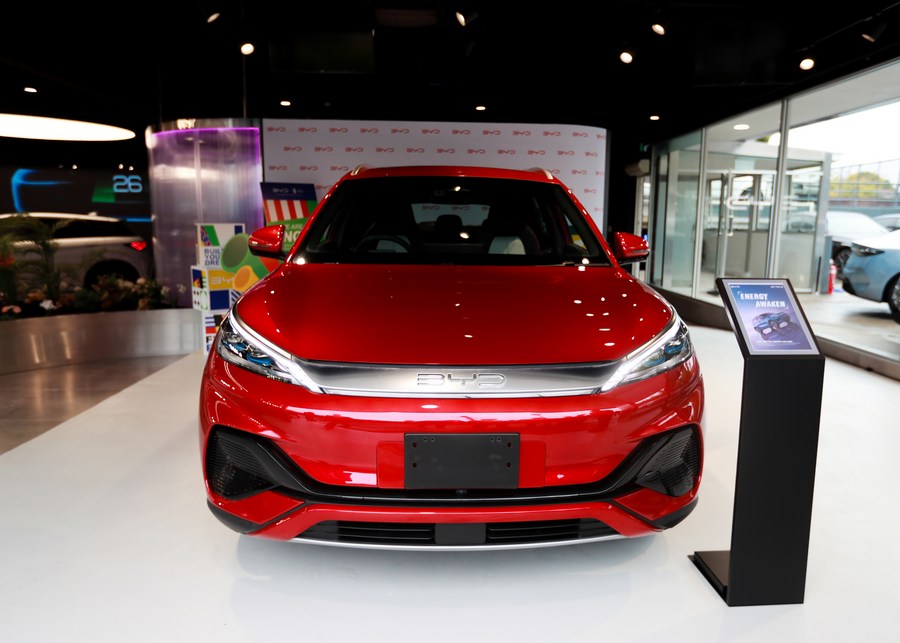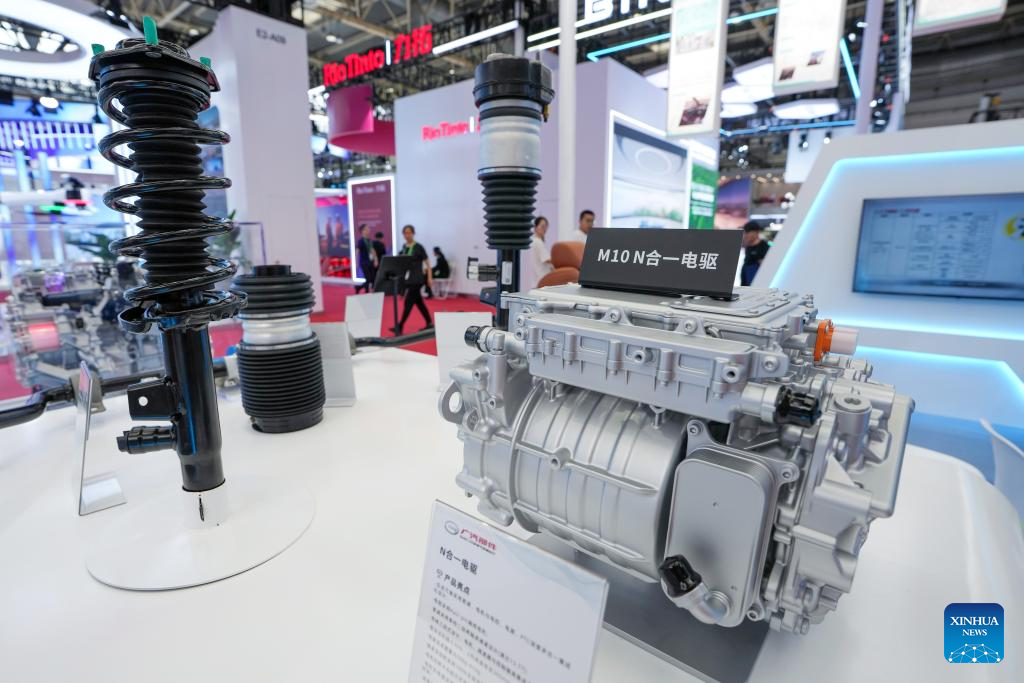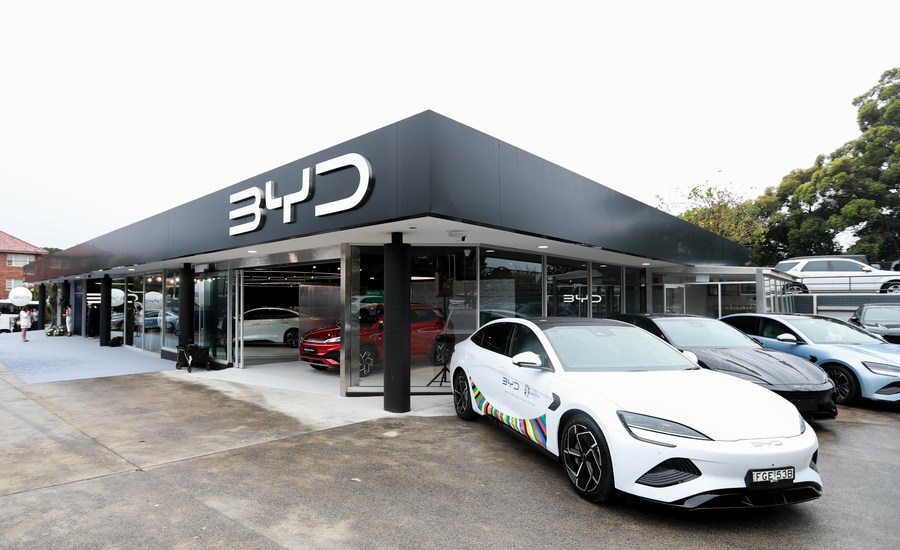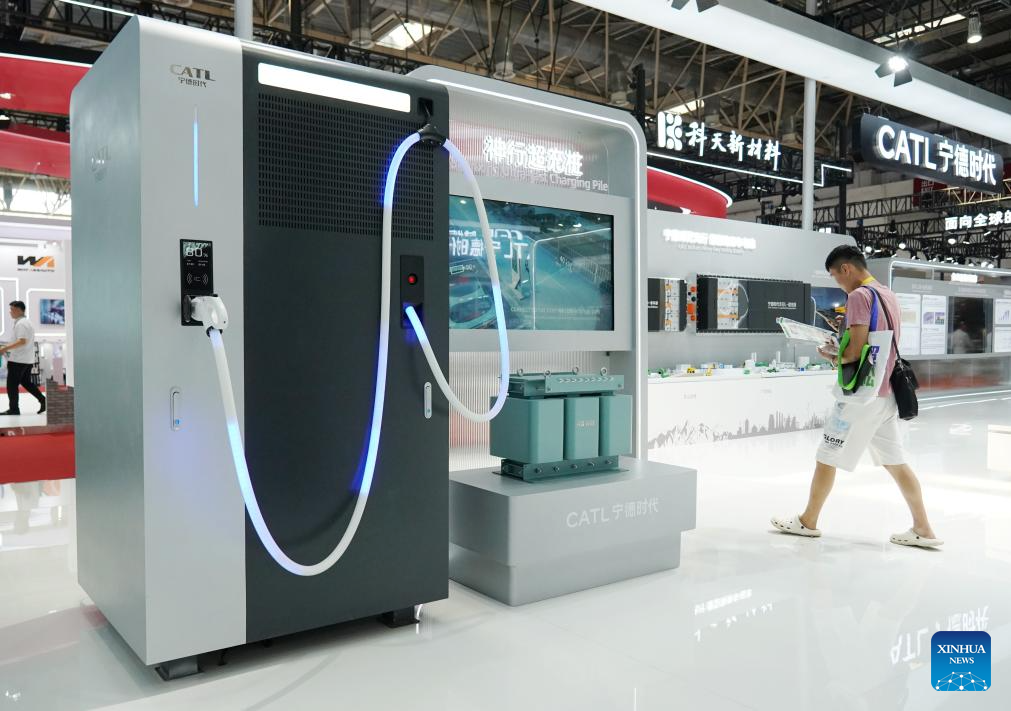
Chinese automakers are moving to pole position in the Australian market and are set to become the leading importers in the coming decade, amid rising demand linked to green growth trends, according to latest industry analysis.
“China is gaining momentum in supplying vehicles to the Australian market” and is “on track to become the dominant source of automotive imports by 2035”, with 43 percent of all new vehicles sold by that time coming from the country, research findings released by the Australian Automotive Dealer Association on July 22 showed.
The “rapid growth of imports from China will fundamentally change the Australian automotive landscape”, according to a statement from the association, which positions itself as the peak industry advocacy body representing franchised new car and truck dealers in Australia.
ALSO READ: BYD expands EV export capacity with fifth car carrier delivery
There are over 3,700 car and truck dealerships, ranging from family owned small businesses to larger and publicly owned businesses operating across Australia, it said.
”Some of the Chinese brands are becoming so sophisticated that we hope they will soon launch dealer councils like the brands that currently dominate in Australia,” the association’s CEO James Voortman told China Daily.
The association cited a convergence of factors fueling the dominance of Chinese suppliers in the sector – Australian policy incentives, such as a new vehicle efficiency standard that favors zero-emission vehicles, rising local demand for low-emission options, China’s lower production costs, and its strategic specialization in key segments like electric vehicles.

Amid the growth trends, Voortman also highlighted some of the challenges in the sector, such as “the supply of parts, wait times to service vehicles, and the long-term ability of manufacturers to guarantee their consumer warranties”.
The association will be working on appropriate support for Australian dealers and consumers, he said.
EV sales in Australia already recorded a strong start this year, outpacing the first half of last year, according to the Electric Vehicle Council, which is the peak national body representing Australia’s EV sector.
READ MORE: Xiaomi powers EV growth through smart manufacturing
The growth is being driven by a rise in consumer demand. EV sales in Australia are powering ahead this year, with more than 14,000 additional electric vehicles sold in Australia so far in 2025, compared to the same period the year before. Between January and June 2025, EVs accounted for more than 12 percent of all new car sales, up from 9.6 percent during the same period last year, the council’s CEO Julie Delvecchio told China Daily.
“There are now more than 150 electric vehicle models in Australia that suit the diverse needs of Australian motorists. From family-friendly SUVs to tradie-ready utes, small business vans to zippy suburban hatchbacks, there’s now an EV for every lifestyle Down Under,” she said.

“Increased competition across EV brands and models in the Australian market is driving sustained uptake, with Chinese automakers emerging as major contributors.”
Chinese EV automakers are playing a transformative role in Australia's auto sector, bringing competitive pricing and more choice, and supporting EV adoption across different customer groups, Delvecchio said.
“The availability of affordable, high-quality vehicles from Chinese EV automakers will be a key part of meeting growing demand and achieving national climate goals,” she said.
READ MORE: China's EV battery recycling boom fuels green transition, taps global market
“Chinese EV automakers are no longer fringe players, they’re core drivers of Australia’s EV market growth. Offering a diversity of models with attractive features at increasingly competitive prices, Chinese automakers have captured significant EV market share in Australia, provoking shifts in pricing, consumer expectations, and industry competition,” Delvecchio said.
“Supported by effective Australian policies like the New Vehicle Efficiency Standard, the growing presence of Chinese EVs is expected to continue making electric vehicles more accessible while setting new benchmarks for affordability, technology, and value,” she said.
This growth brings challenges, including building more charging infrastructure to sufficiently meet uptake, as well as opportunities such as seizing emerging technologies like vehicle-to-load where you can do things like power tools or camping fridges while on the go. “This will require coordinated investment and regulatory reform to ensure Australia’s EV transition is both rapid and resilient,” she said.

A challenge for new market entrants is navigating the regulatory landscape and building consumer trust. The EVC is convening a dedicated series of discussions with Chinese automakers and industry leaders to address these challenges and work together to accelerate EV adoption in Australia, she added.
New vehicle sales across Australia totaled 122,509 units in June, marking a 2.4 percent increase over the same month last year, according to a statement from the Federal Chamber of Automotive Industries in early July. The chamber is the peak representative organization for companies who distribute new passenger vehicles, light commercial vehicles and motorcycles and all-terrain vehicles in Australia.
READ MORE: Toyota's EV plant in Shanghai has big plans
The latest sale figures brought the year-to-date total to 608,811 new vehicles, “demonstrating the strength and resilience of the automotive sector despite ongoing economic pressures”, the chamber said.
“Australia remains one of the most open and competitive markets in the world, where consumers have a wide range of choice across all market segments,” its chief executive Tony Weber said.
Contact the writer at alexishooi@chinadaily.com.cn


